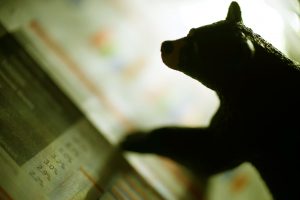Why The Next Bear Will Be Bad
The comments below are an edited and abridged synopsis of an article by Eric Parnell
According to the National Bureau of Economic Research (NBER), the economy would expand and then, for just over a year on average, it would fall into recession. This historical rhythm is important in maintaining balance in the US economy. By periodically entering into recession, the economy is given the opportunity to cleanse the excesses built up during the last expansion and build a stronger base for the next phase of growth. When Alan Greenspan took the reins as Federal Reserve chairman, the idea was that the US economy could enjoy continued growth without recessions through the active implementation of fiscal and monetary policy.

Implementations of these policies have disrupted the long-term rhythm of the US economy for many years. The US has been battling an increasingly challenging case of economic arrhythmia in recent years. While policy makers have led us to try and cheat this historical cycle by trying to take the good while avoiding the bad, history tells us that the practice of trying to cheat recessions can bring far greater consequences down the road.
